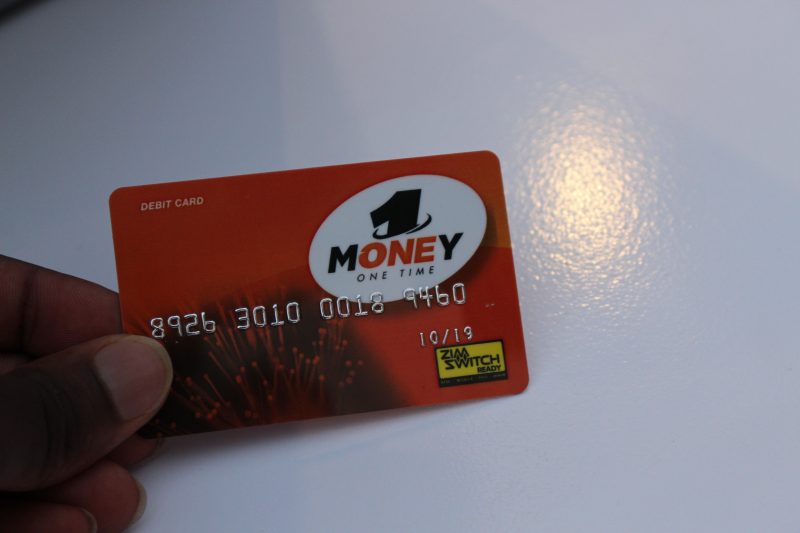In April of last year, when COVID-19 hit the country and tough lockdowns were introduced, Finance Minister Mthuli Ncube announced that the government had a budgeted $600 million dollars that were meant for the vulnerable members of society as well as small informal business owners who had been exposed by the lockdown.
There was a widespread sigh of relief at this cheerful news. Most Zimbabweans rely on the informal sector for income and there was no doubt the lockdown which had just been introduced would be devastating to this sector. As with all government announced projects in recent years cheer gave way to dismay as people and small businesses waited for relief that never came.
Turns out our esteemed Finance Minister and his omniscient government were using a “sophisticated algorithm” to determine who was eligible to receive funding. The claim was that the algorithm would check how much money is in a potential recipient’s bank account, mobile wallets and then use the phone number to determine whether they would receive the allowance or not.
Nobody knows how the murky algorithm worked or how it go access our private data. Apparently, it identified 200 000 people through the Ministry of Social Welfare and a further 800 000 through Econet. Now here is the thing. I know a lot of informal traders and vulnerable people and not a single one of them has ever received the allowance. Maybe they are just not vulnerable or disabled enough or they just slipped through the cracks.
Also instead of paying these mysterious million people into their bank accounts or existing mobile wallets, the government decided to rope in OneMoney as the monopoly distributor. I mean why do things the easy way when you can do it the hard way right?
Thanks to an act of fraud by one UZ Social Welfare student we got a bit of insight into how this distribution process worked. This student was attached to the Social Welfare program in Masvingo where she managed to steal about 53 NetOne SIM cards. These were not your ordinary SIM cards as each line was loaded with ZWL$1 700 ZWL in OneMoney. I am speculating that these SIMs were part of this program and if not it’s pretty reasonable that the allowance was distributed in the same way.
I have so many questions here, such as in whose names were the lines registered? Whose names were on the OneMoney wallets registered? What systems were in place to prevent fraud and abuse? I mean, a student was able to steal 53 lines and almost got away with it. Turns out I am not the only one with questions. The country’s Auditor-General has them too. Apparently, there was a lot of chaos and mishandling of these funds.
No reconciliations were done with the mobile money service provider to confirm whether all the payments reached the intended beneficiaries as there were instances where the mobile money service provider issued two (2) different NetOne lines to the same individual.
There was processing of payments to beneficiaries with fictitious identity numbers and suspicious names (as well as) incorrect and insufficient contact addresses. There was also use of similar contact addresses for beneficiaries in districts.
No follow-up mechanism was developed to verify existence of the beneficiaries and whether the allowances had reached the intended beneficiaries.
Auditor General’s Office.
The allowance program comes to an abrupt end
Now it seems the allowance program is coming to an abrupt end. The reason the government is giving is that it’s no longer needed as the country received ” a bumper harvest.” Never mind we are deep in the throes of the third wave and the informal sector is still struggling. We don’t even know how much of the $600 million was disbursed, to whom, when and why.
The money that the Hon. Member has made reference to, last year we used to disburse it to a lot of people because of the drought that was prevailing. At the moment, the Social Welfare Department is busy screening or vetting those people that need to be weeded out because we have a bumper harvest. If you are to observe, you will see that in the past, in the communal lands, everyone was entitled to receive this benefit, but at the moment they are vetting the rightful candidates that should receive it.
Minister Ziyambi Ziyambi providing an update on COVID-19 allowances recently in Parliament
According to the government, able-bodied people are no longer eligible to receive this allowance. Even more strange is the new raison d’être we are being given here. When did this become a drought allowance? They clearly said it was a COVID-19 allowance at the beginning so when did it all change?
If you are confused you are not the only one but perhaps this is a fitting end to a confusing program that never really made a difference. The sad thing is it’s just another in a long list of confusing government-linked projects.

What’s your take?